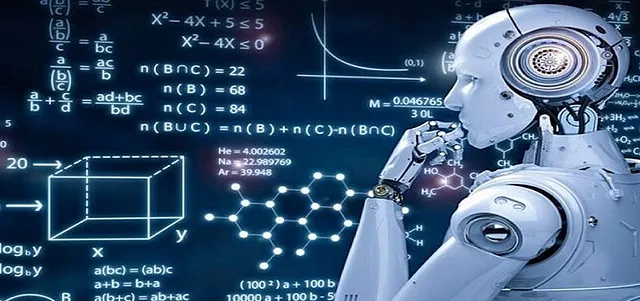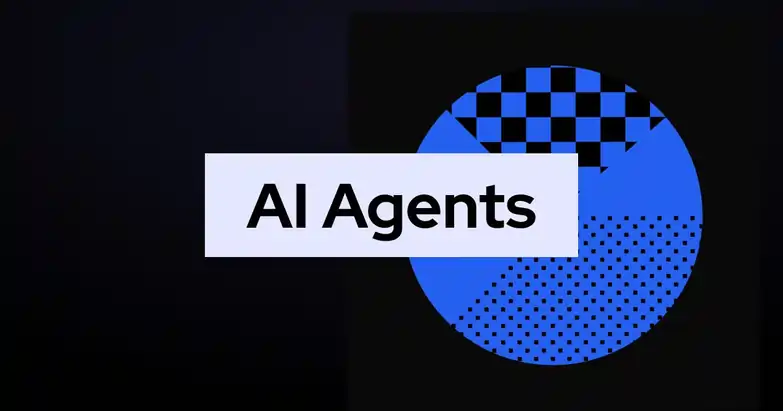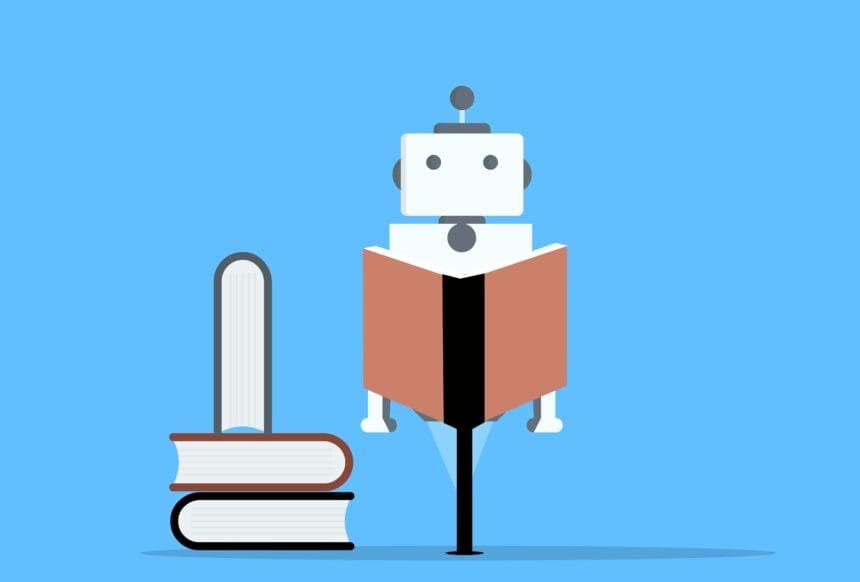AI Agents are the new software paradigm. Here we explore the best AI agent tools which will take the way we use software to the next level. Many of these AI agent tools also called as AI agent frameworks or AI agent builder (in various context) are free. We go slowly to understand the new reality of AI agents, what are the tools to develop such agents , models used and some free AI agent builders.
What are AI Agents?
AI agents are autonomous software entities designed to perform tasks on behalf of users or other systems. These agents can perceive their environment through sensors, process information, make decisions, and execute actions to achieve specific goals. The concept of AI agents is rooted in the idea of creating intelligent systems that can operate independently, adapt to changing conditions, and learn from their experiences.
Types of AI Agents
- Reactive Agents: These agents respond to stimuli from their environment without maintaining an internal state. They operate based on a set of predefined rules and react to changes in their surroundings. For example, a thermostat that adjusts the temperature based on the current room temperature is a reactive agent.
- Deliberative Agents: These agents maintain an internal model of the world and use it to make decisions. They can plan actions by considering future states and outcomes. For instance, a chess-playing AI that evaluates possible moves and their consequences is a deliberative agent.
- Hybrid Agents: These agents combine reactive and deliberative approaches. They can respond quickly to immediate changes while also planning for long-term goals. An example is an autonomous vehicle that reacts to obstacles in real-time while following a planned route.
- Learning Agents: These agents improve their performance over time by learning from their experiences. They use techniques like machine learning to adapt to new situations and optimize their actions. A recommendation system that suggests products based on user preferences is a learning agent.
What are AI Agent Frameworks or tools ?

AI agent frameworks , are platforms, tools or applications that facilitate the creation, management, and deployment of AI agents. The best AI Agent tools provide the necessary infrastructure, algorithms, and components to build agents capable of automating tasks, processing data, and interacting with users or other systems.
Key Features of AI Agent Frameworks
- Development Environment: AI agent tools offer integrated development environments (IDEs) that simplify the coding and testing of agents. These environments often include debugging tools, code editors, and simulation capabilities.
- Pre-built Components: Many tools provide pre-built components and libraries for common tasks such as natural language processing, image recognition, and data analysis. These components can be easily integrated into agents, reducing development time.
- Scalability: AI agent tools are designed to handle large-scale deployments. They offer features like load balancing, distributed computing, and cloud integration to ensure that agents can operate efficiently in various environments.
- Monitoring and Analytics: Effective tools include monitoring and analytics features that allow developers to track the performance of agents, identify issues, and optimize their behavior. These features are crucial for maintaining the reliability and effectiveness of AI agents.
What Models are Used to Design AI Agent Tools?
AI agent tools leverage various models and algorithms to enable intelligent behavior. Some of the most commonly used models include:
- Large Language Models (LLMs): Models like GPT-4 and BERT are used for natural language understanding and generation. These models are trained on vast datasets and can generate human-like text, making them ideal for conversational agents and chatbots.
- Reinforcement Learning Models: These models enable agents to learn by interacting with their environment and receiving feedback in the form of rewards or penalties. Reinforcement learning is used in applications like game playing, robotics, and autonomous systems.
- Neural Networks: Deep learning models, including convolutional neural networks (CNNs) and recurrent neural networks (RNNs), are used for tasks like image recognition, speech processing, and time-series analysis. These models can process complex data and extract meaningful patterns.
- Decision Trees and Random Forests: These models are used for classification and regression tasks. They are particularly useful for making decisions based on structured data and are often used in recommendation systems and predictive analytics.
- Bayesian Networks: These probabilistic models are used for reasoning under uncertainty. They can represent complex relationships between variables and are used in applications like medical diagnosis and risk assessment.
Why AI Agent Tools Can Be Disastrous for Us?
While AI agent tools offer numerous benefits, they also pose potential risks and challenges. Some of the key concerns include:
- Bugs and Glitches: Software errors can lead to unexpected behaviors in AI agents. These bugs can cause agents to make incorrect decisions, leading to undesirable outcomes. For example, a bug in an autonomous vehicle’s navigation system could result in accidents.
- Data Quality Issues: AI agents rely on data to make decisions. If the data is biased, incomplete, or inaccurate, the agents’ outputs will be flawed. This can lead to biased recommendations, incorrect predictions, and unfair treatment of individuals.
- Adversarial Attacks: AI agents can be vulnerable to adversarial attacks, where malicious inputs are designed to deceive the agent. For instance, an attacker could manipulate a facial recognition system by presenting altered images that bypass security measures.
- Goal Misalignment: If the goals of an AI agent are not properly aligned with human intentions, the agent may pursue objectives that conflict with user interests. For example, an AI agent tasked with maximizing productivity might overwork employees, leading to burnout.
- Privacy Concerns: AI agents often process sensitive data, raising concerns about privacy and data security. Unauthorized access to this data can result in breaches and misuse of personal information.
What Makes AI Agent Frameworks or Tools the Next Step Towards AI Hype in 2025?
AI agent tools are considered the next big step in the AI landscape due to several factors:
- Enhanced Automation: AI agents can handle complex, multi-step tasks autonomously, reducing the need for human intervention. This enhances productivity and allows humans to focus on more strategic activities.
- Improved Efficiency: By automating repetitive and time-consuming tasks, AI agents free up valuable time and resources. This leads to increased efficiency and cost savings for businesses and organizations.
- Personalization: AI agents can adapt to user preferences and provide tailored experiences. For example, virtual assistants can learn user habits and offer personalized recommendations, improving user satisfaction.
- Scalability: AI agent tools are designed to scale, making it possible to deploy agents across various domains and industries. This scalability ensures that AI solutions can be implemented on a large scale, driving widespread adoption.
- Innovation: The development of AI agent tools fosters innovation by enabling the creation of new applications and services. This drives the AI industry forward and opens up new opportunities for businesses and developers.
Five Best AI Agent Tools
- Relevance AI: A no-code platform that allows businesses to create automation agents without writing code. It offers pre-built templates and integrations with popular applications, making it easy to automate workflows and processes.
- Zapier Central: A tool that connects and automates tasks across over 6,000 apps. Users can create “Zaps” to automate repetitive tasks, such as sending emails, updating spreadsheets, and posting on social media.
- AutoGPT: An open-source framework for building autonomous agents. It leverages GPT-4 to create agents that can perform tasks like content generation, data analysis, and customer support.
- Langflow: An open-source tool for creating complex AI workflows. It provides a visual interface for designing and deploying AI agents, making it accessible to users with varying levels of technical expertise.
- Botpress: A platform for building conversational agents with a visual workflow designer. It supports natural language understanding and can be integrated with various messaging platforms, enabling businesses to create chatbots for customer support and engagement.
How to Use AI Agent Frameworks
Using AI agent tools typically involves several steps:
- Defining Goals: Clearly specify what you want the agent to achieve. This could be automating a specific task, providing customer support, or analyzing data.
- Setting Up the Environment: Configure the tool with necessary integrations and data sources. This may involve connecting to APIs, databases, or other software applications.
- Training the Agent: Use training data to teach the agent how to perform tasks. This could involve providing examples, defining rules, or using machine learning algorithms to train the agent.
- Deploying the Agent: Launch the agent in a real-world environment to start automating tasks. This may involve deploying the agent on a server, integrating it with a website, or connecting it to a messaging platform.
- Monitoring and Refining: Continuously monitor the agent’s performance and make adjustments as needed. This could involve analyzing logs, collecting feedback, and updating the agent’s behavior to improve its effectiveness.
Free AI Agent Builder Tools and How to Use Them

Several AI agent tools are available for free, offering powerful features without the need for a paid subscription. Some of these tools include:
- Botpress: Offers a drag-and-drop interface for creating chatbots and automating workflows. It supports natural language understanding and can be integrated with various messaging platforms. To use Botpress, download the software, follow the setup instructions, and start building your chatbot using the visual workflow designer.
- RASA: An open-source framework for building conversational AI. It provides tools for natural language understanding, dialogue management, and integration with messaging platforms. To use RASA, install the framework, create a new project, and define your chatbot’s intents, entities, and responses.
- LangGraph: Simplifies the creation of complex AI workflows. It offers a visual interface for designing and deploying AI agents. To use LangGraph, sign up for an account, create a new project, and start building your workflow using the drag-and-drop editor.
- CrewAI: An open-source platform for building multi-agent systems. It provides tools for creating, managing, and deploying agents that can collaborate to achieve common goals. To use CrewAI, download the software, follow
- MindPal : Mindpal is a 100% free AI agent builder that can create custom AI agents based on your specific need without any coding skills. The agent builder is user-friendly and requires no coding or technical skills.
In this article we checked out some of the free AI agent builder tools or some call them assistants. You can read our article to know more about expectations from AI assistants.
In the next few years we will see a big change in the way we live, the way we use our gadgets and perform daily tasks. Our mannerism might change, our communication methods and efficiency might take a different level.
If you think differently, please place your thoughts in the comments section.









